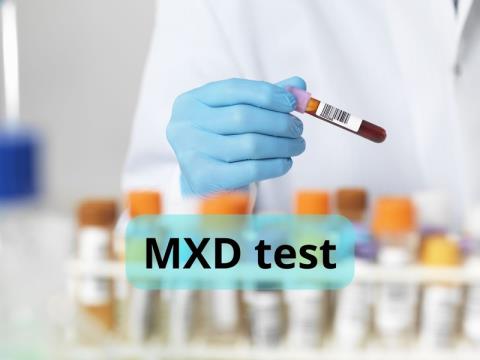A complete blood count (CBC) is a cornerstone of modern medical diagnostics. Among its many abbreviations, MXD often puzzles patients. Understanding what MXD is and its implications can empower you to take charge of your health.
What Does MXD Mean in Blood Tests?
MXD (Mixed Cell Count) represents the percentage of peripheral blood cells excluding neutrophils and lymphocytes. This includes monocytes, eosinophils, basophils, and other rare cell types. The normal MXD range typically falls between 5-15%, though this varies slightly between laboratories.

Why MXD Matters: Key Clinical Applications
Healthcare providers use MXD values to:
- Detect early signs of infection or inflammation
- Monitor autoimmune disorders
- Identify allergic reactions
- Screen for blood cancers (leukemia, lymphoma)
Normal Blood Cell Ranges (Adults)
| Cell Type |
Percentage |
Clinical Significance |
| Neutrophils |
40-60% |
Bacterial infection response |
| Lymphocytes |
20-40% |
Viral infections/immunity |
| MXD Components |
5-15% |
Chronic inflammation/allergies |
Source: American Society of Hematology
Interpreting MXD Results: What You Need to Know
An elevated MXD (>15%) could indicate:
- Parasitic infections (eosinophilia)
- Chronic inflammatory conditions
- Certain cancers (e.g., chronic myelomonocytic leukemia)
Conversely, low MXD (<5%) might="">
- Acute bacterial infections
- Stress response
- Corticosteroid therapy effects
Factors Affecting MXD Accuracy
According to a 2022 JAMA study, 12% of abnormal MXD results stem from pre-analytical errors. Ensure reliable results by:
- Fasting 8-12 hours before testing
- Avoiding strenuous exercise 24 hours pre-test
- Informing your doctor about all medications

MXD in Preventive Healthcare
Regular CBC testing with MXD analysis helps:
- Detect subclinical health issues
- Monitor treatment effectiveness
- Guide nutritional adjustments
For optimal health tracking, consider annual blood tests if over 40, or biennial tests for younger adults.
When to Seek Medical Advice
Consult a hematologist if:
- MXD remains abnormal on repeat tests
- You experience unexplained fatigue/weight loss
- Results show >20% MXD with other CBC abnormalities
Remember: MXD should always be interpreted alongside other blood test markers like hemoglobin and platelet count.
Key Takeaways
- MXD reflects mixed white blood cell populations
- Abnormal values warrant further investigation
- Regular monitoring aids early disease detection
Armed with this knowledge about what MXD means, you're better equipped to understand your complete blood count results. Stay proactive in health management through periodic testing and professional medical consultation.










